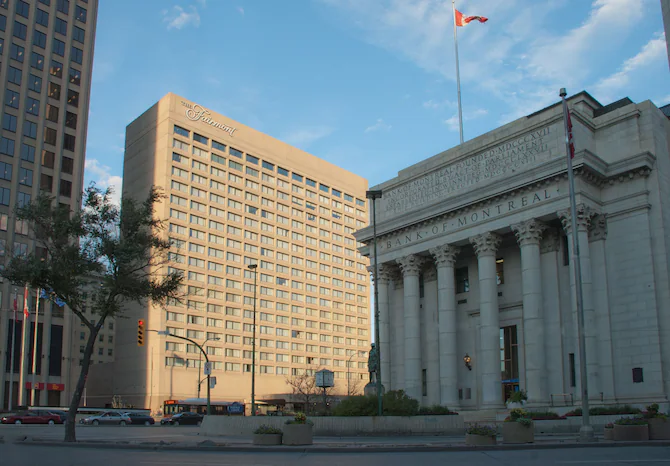

Welcome to our first ever Crisis Communications Boot Camp in WInnipeg!
Group discounts available! Contact us today for more info!
We live in an era of constant crisis. Covid-19, political and societal turmoil, fake news, cybercrime and cancel culture have completely changed the world of crisis and reputation management. As a result, we need to rethink crisis planning. To survive in this new environment, the entire concept of crisis communications needs to flip.
Supported by case studies by some of North America's leading communications experts, our fully updated, the Crisis Communications Boot Camp will cover:
Senior Vice President, Public Affairs and Communications, Central Canada, Leger
10.00 10 Issues Management Lessons from (very) Controversial Speakers in the Age of Cancel Culture
If getting cancelled isn't part of your crisis planning, it needs to be. In this opening keynote session, Kut will help you rewrite your crisis plan and protect your reputation in an era of cancel culture.
Kurt Heinrich, Senior Director, Media Relations, University of British Columbia
10.40 Rebuilding Trust: Combatting a “Crisis of Trust” in Today’s Global Landscape
Cyber-crime, changing political landscapes, new systems of influence and COVID-19 have created a crisis of trust in today’s world. In this session Lisa will share with you how to successfully safeguard your organization’s relationship with the public, build and keep the public’s trust amid new threats and protect and advance your reputation in times of unprecedented changes.
Lisa Gibson, Head of Communications / Business Manager, Marketing and Operations, Microsoft Canada
11.20 Understanding Your Organization’s Role in Society and Why Knowing That Can Determine Success or Failure in a Crisis
Cameron Summers, Executive Vice President, Client Experience and Toronto Office Lead, Weber Shandwick
12.00 Lunch for Speakers and Delegates
13.00 Whose Crisis Is This? Issues Management For the Unexpected
What’s worse than managing a crisis? Managing the ones that fall in your lap thanks to a third party! Over 20 years, Chief Communications Officer Alonda Thomas has witnessed, managed and survived a variety of crisis issues, including situations related to hazing incidents, student protests, hospital takeovers, unwanted attention from elected officials, and most recently, the lack of drinking water in a major city. She will present real examples and tips that you can add to your crisis communications playbook to help you expect the unexpected.
Alonda Thomas, Associate Vice President for Marketing and Communications, Jackson State University
13.40 Understand the New Rules of Crisis Communications in a Hostile Cyber Risk Landscape
According to The Economist, if the prize resource of the 20th century was oil, the prize resource of the 21st century is data.
Information is the currency of today’s world order. Boards and business leaders have been forced to learn how to adapt to the risks that cybersecurity issues pose to their businesses.
In this presentation, Greg will dive into the current cybersecurity landscape, helping you get a handle on how attacks are evolving and how to adapt your organisation’s response to multi-layered threats from increasingly sophisticated and media-savvy hackers.
Greg Vanier, Head of Crisis & Reputation Risk, Edelman Canada
14.20 Networking and Refreshment Break
14.50 Building a Social Media Crisis Management Strategy for the New Reality
In an industry that never sleeps, how do social media teams manage non-stop conversations taking place on multiple platforms? When is it appropriate to respond, or when should you keep scrolling? Chloe A. Politis, Director of Digital and Social Media at the Mount Sinai Health System, will share best practices and how her team managed the largest health care crisis of our lifetime on social media
Chloe A. Politis, Director of Digital and Social Media at the Mount Sinai Health System
15.30 How to Successfully Measure Your Organization's Reputation Before, During, and After a Crisis
We are living in an era of constant crises and your brand reputation has impact on virtually everything. In these turbulent times, eputation measurement can be tricky unless you have your metrics right. In this session Lisa will go over the most important brand reputation metrics and what they can achieve for your company before, during and after a crisis.
Lisa Covens, Senior Vice President, Public Affairs and Communications, Central Canada, Leger
16.10 Closing Discussion and End of Day One
10.00- 16.00 Interactive Crisis Simulation Workshop with Donald Steel: Crisis Communications in the New Reality
In this extended workshop, leading crisis communicator Donald Steel explores how crisis communications is changing in the post-pandemic world.
Combining long standing best practice with ideas on how crisis communicators can effectively support those affected by the crisis and protect the reputation of the organisation they represent.
This highly interactive workshop includes an opportunity to work with your fellow delegates through a challenging but very engaging crisis scenario, harnessing social media, media interviews and a sensitive press conference.
You will return to work with:
- Donald’s ten top post-pandemic crisis communications tips
- An action plan to improve executive readiness for crisis communications
- A heightened awareness of how to communicate in an increasingly aggressive environment
At the end of this workshop you will:
- Understand the relationship between advance preparation and speed in crisis communications
- Be equipped to review your organisation’s tone, language and style on social media in a crisis
- Be familiar with aggressive question types in crisis media interviews and how to deal with them
- Be ready to review your organisation’s crisis communications plan in the light of the workshop
10.00 Ten top post-pandemic crisis communication tips
10.40 Crisis Scenario Part One - breaking news and the use of social media
11.10 Can you be social in a crisis and the role of the dark site
11.30 Crisis scenario Part Two - handling a media interview
12.30 Lunch for Speakers and Delegates
13.30 Crisis scenario Part Two (continued) - the media interview
14.40 Crisis scenario Part Three - press conference
15.40 Discussion, summary
16.00 End of Crisis Communications Boot Camp 24
Hotel Fairmont Winnipeg
Address: 2 Lombard Place, Winnipeg, MB R3B 0Y3, Canada
Phone: +1 204-957-1350
Embrace the spirit of this cosmopolitan city through its diverse culture, boutique shopping, unique outdoor experiences and stunning cityscapes. At the Fairmont, quality, comfort, and convenience come standard, and its central location makes it perfect for your next corporate meeting or family “staycation”.
Winnipeg's premier hotel will instantly charm as you experience our service that has made us famous, well-appointed guestrooms, suites and historic surroundings.
Travel easily to the Canada Life Centre and RBC Convention Centre through the underground concourse, or visit the nearby attractions. Located in the heart of the city, the Fairmont Winnipeg continues to be the hotel of choice for the discerning traveller.

This program can also be delivered as a tailored in-house training for your organization. We adapt the content to your industry, objectives, and level of maturity, focusing on real challenges your teams face and the decisions they need to make. In-house formats allow your people to align on a shared approach, work through relevant scenarios, and build skills they can apply immediately.
If you’re exploring an in-house option, tell us a bit about your team, priorities, and timing, and we’ll recommend the right format.
Contact us about in-house training